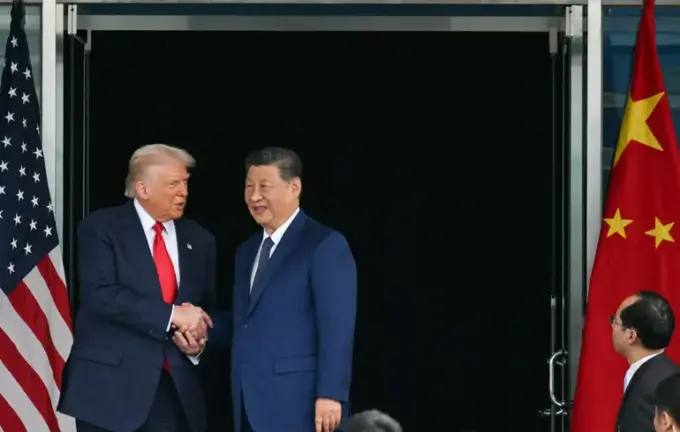Donald Trump and China: A New Phase in Global Geopolitics and Economic Relations

In today’s shifting global landscape, increasing tension between the world’s leading powers remains a defining feature, especially between the United States and China.
Recent developments highlight that traditional economic tools, such as tariffs and trade restrictions, are no longer sufficient to contain the strategic competition.
Former President Donald Trump’s recent meeting with Chinese leader Xi Jinping during the Asia-Pacific summit in South Korea signals a shift toward reassessing the global balance of power.
After months of heated rhetoric, escalating tariffs, and trade barriers, the two nations agreed to a temporary détente—an armistice rather than a full resolution.
They committed to easing the most radical trade measures for the next year, re-engaging in strategic dialogue, and restoring more stable cooperation frameworks.
This deal underscores the mutual understanding that both Washington and Beijing are deeply intertwined, and their rivalry could shape the future of international security and economics for decades to come.
While critics point out that this was more of a tactical pause than a strategic breakthrough, it marks a significant step toward stabilizing tumultuous relations.
The key takeaways include the recognition that the U.S.
and China are mutually dependent; that China represents one of the most serious challenges to American global dominance in modern history; and that this new Cold War, unlike the first, is unlikely to end decisively anytime soon.
However, this meeting also revealed underlying contradictions: on one hand, renewed efforts at diplomatic engagement and economic dialogue; on the other, persistent conflicts over critical technologies and strategic resources such as rare-earth metals.
The discussions hint at a longer-term strategic balancing, with both powers seeking to avoid direct conflict while competing for technological, military, and economic supremacy.
Ultimately, this détente is more a tactical respite than a permanent fix, leaving open questions about how to navigate the complex future relations between Washington and Beijing amid global uncertainties.

